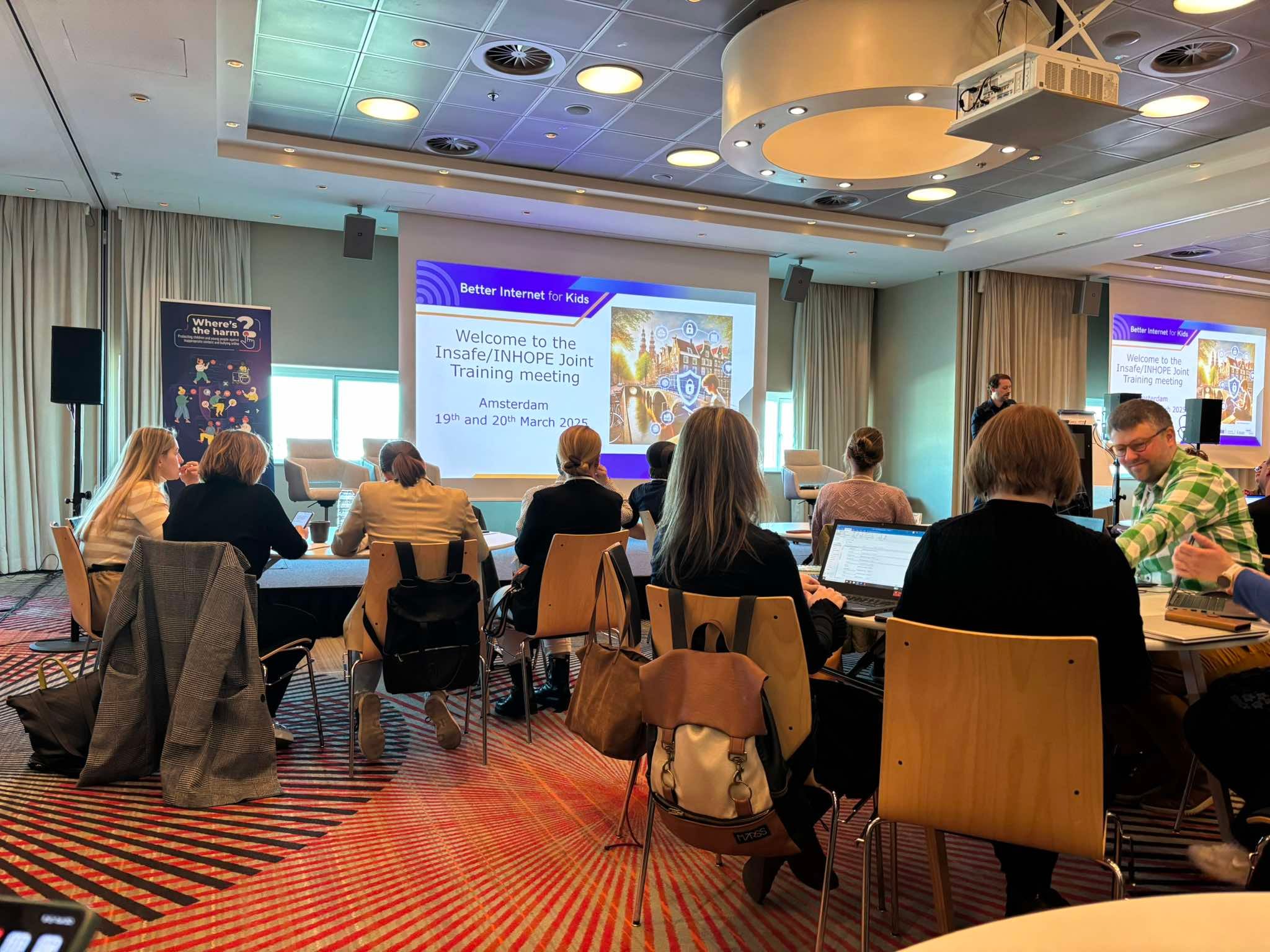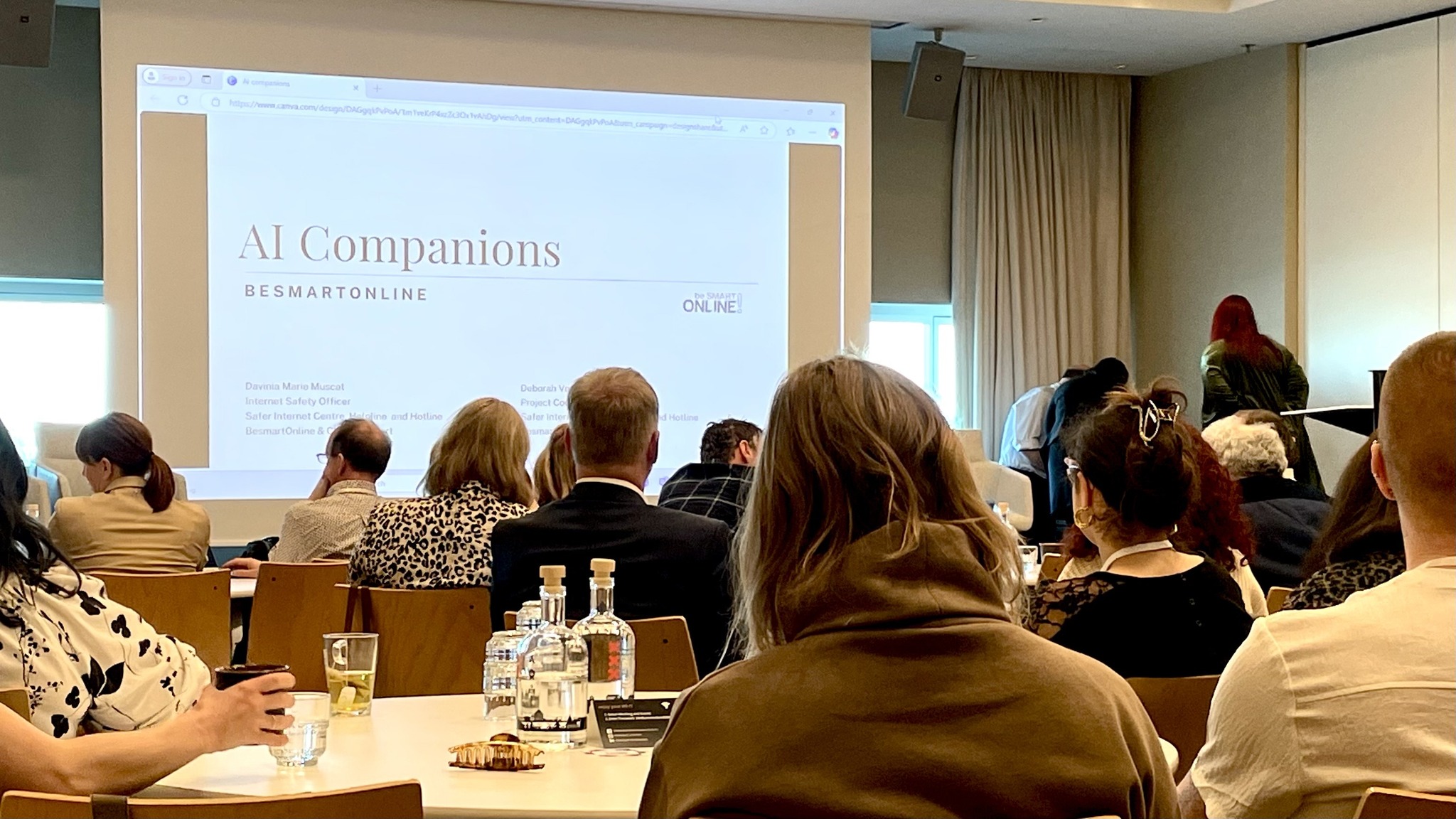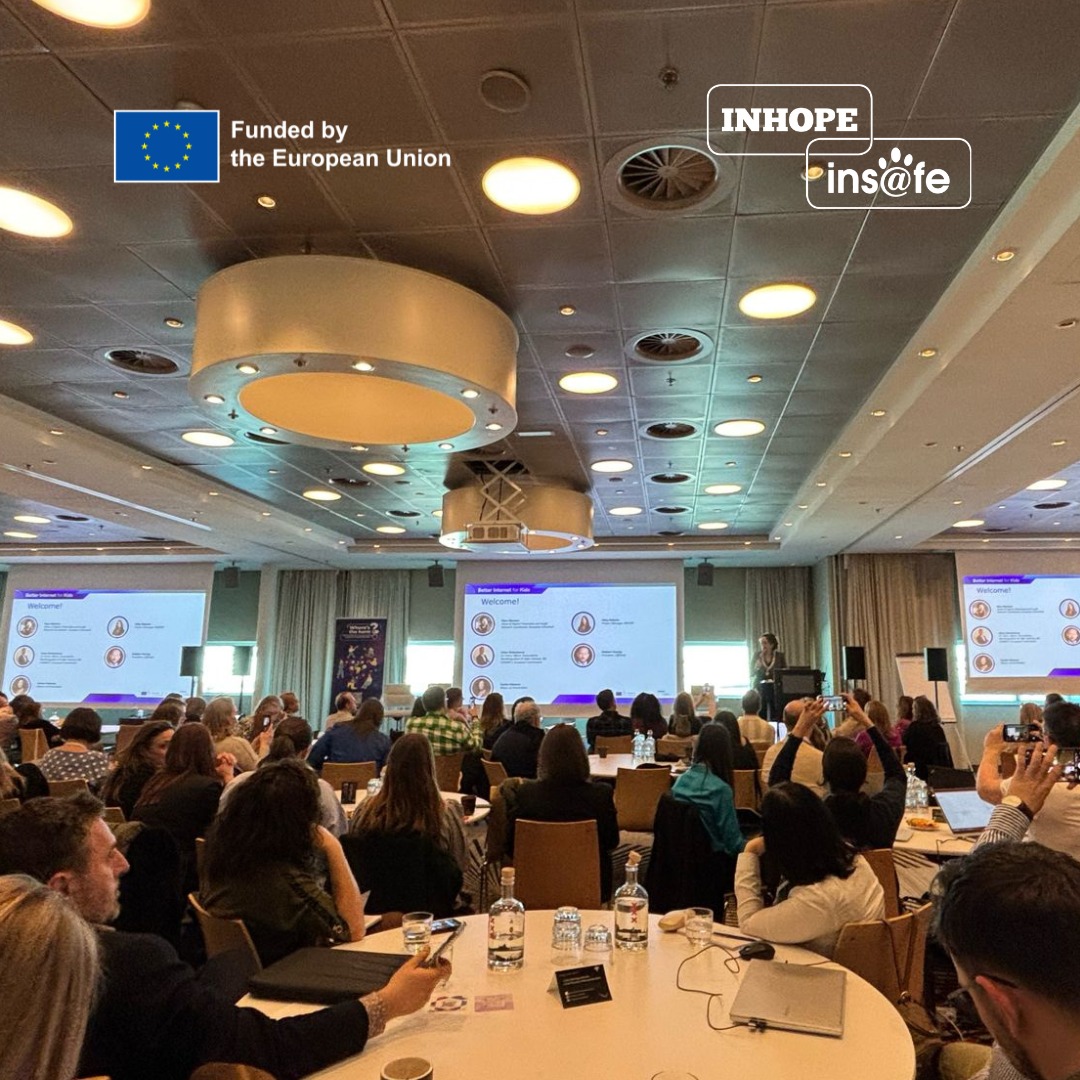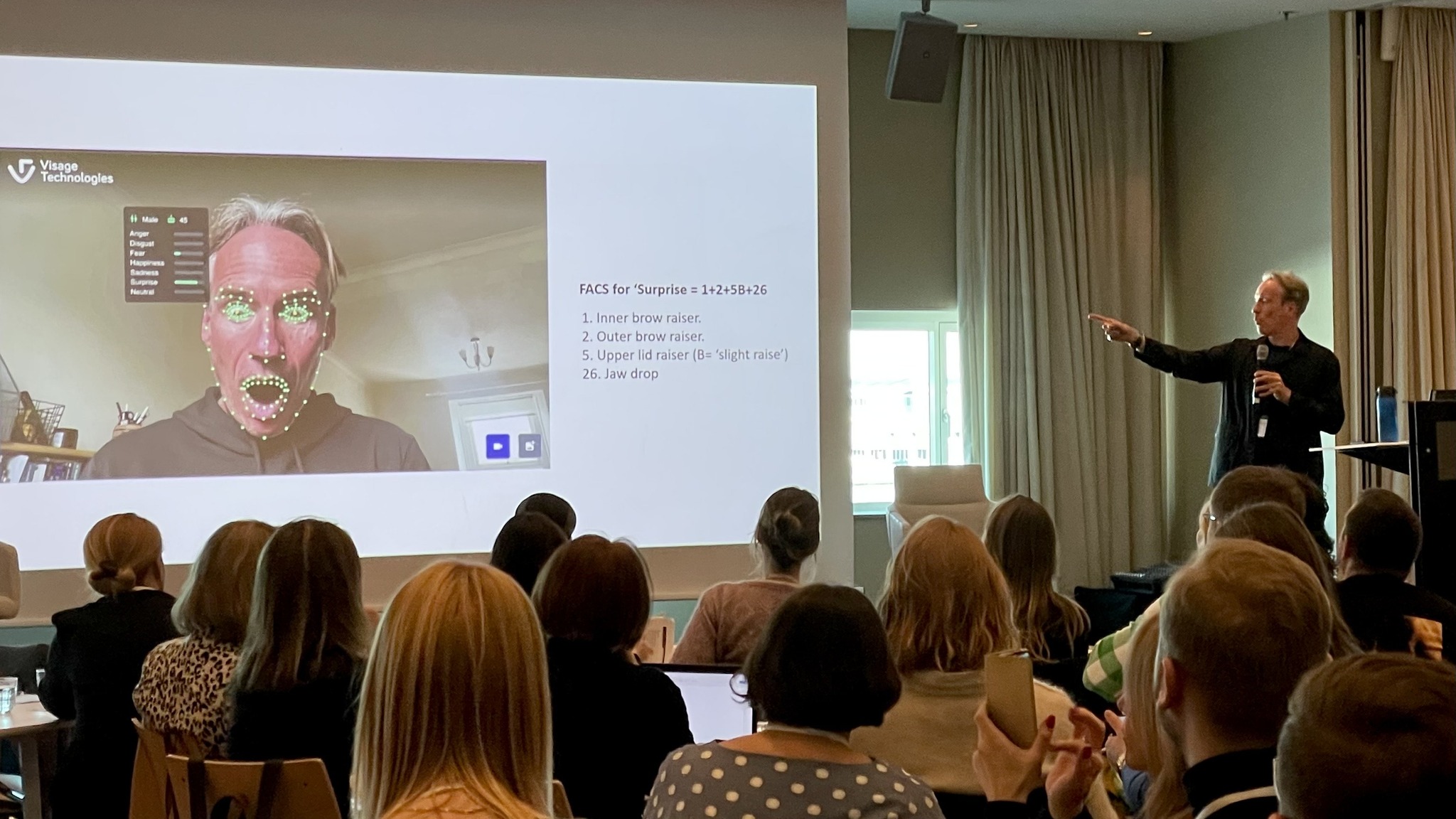Artificial Intelligence (AI) is the main topic of this year’s Insafe-INHOPE Joint Training Meeting (JTM)

What opportunities does Artificial Intelligence (AI) offer, and how can it be used for education? What are the pitfalls and risks of AI technologies for children and youth? How do children perceive the use of AI tools for education, entertainment, and social interaction, and how can we best prepare them for a life alongside this technology? These and other topics related to the benefits and risks of AI use were discussed on the first day of the Joint Training Meeting (JTM) for representatives of Hotline and Helpline centers within the Insafe and INHOPE networks, attended by International Center “La Strada” on March 19–20, 2025.
The event is taking place in Amsterdam, the Netherlands, organized as part of the European Better Internet for Kids initiative and brings together representatives of Helpline and Hotline services, researchers, and private sector companies. The aim is to facilitate the exchange of experience and best practices, explore common areas of interest and opportunities for closer cooperation, analyze the latest advancements in the field of artificial intelligence, and identify ways in which Helpline and Hotline services can incorporate AI into their work.
An important topic discussed during the meeting was the regulation of Artificial Intelligence through the adoption of the European Artificial Intelligence Act (2024/1689), which establishes clear obligations for providers and users based on the classification of risks associated with AI use. This regulation represents a key step toward ensuring a safe and responsible framework for the development and deployment of advanced technologies, thereby protecting users—especially children—from the potential negative impacts of AI.
In this context, the new regulations are expected to contribute to creating a safer online environment by reducing risks of abuse, manipulation, and exposure of young people to harmful content. Moreover, the adoption of this legislation is essential in supporting the protection of children in the digital environment, given that emerging technologies can be used in ways that threaten their safety and well-being. Clear regulations can help prevent such dangers.
Participants also explored the ethical boundaries and practical applications of artificial intelligence in education, discussing a growing trend: the use of chatbots as virtual friends. They examined the needs of young people that drive them to seek companionship and communication via chatbots, as well as the risks this phenomenon may pose to children’s well-being and their ability to build healthy relationships. Discussions highlighted the importance of collaboration and the involvement of private sector companies in ensuring a safer digital environment for children by supporting and implementing innovative solutions to combat online child sexual abuse.
Since 2022, the International Center “La Strada” has held the status of a specialized center for online safety, as part of the European “Better Internet for Kids+” network, coordinated by the European Commission.
This year’s visit was made possible with the support of the Safe Online Global Fund.



